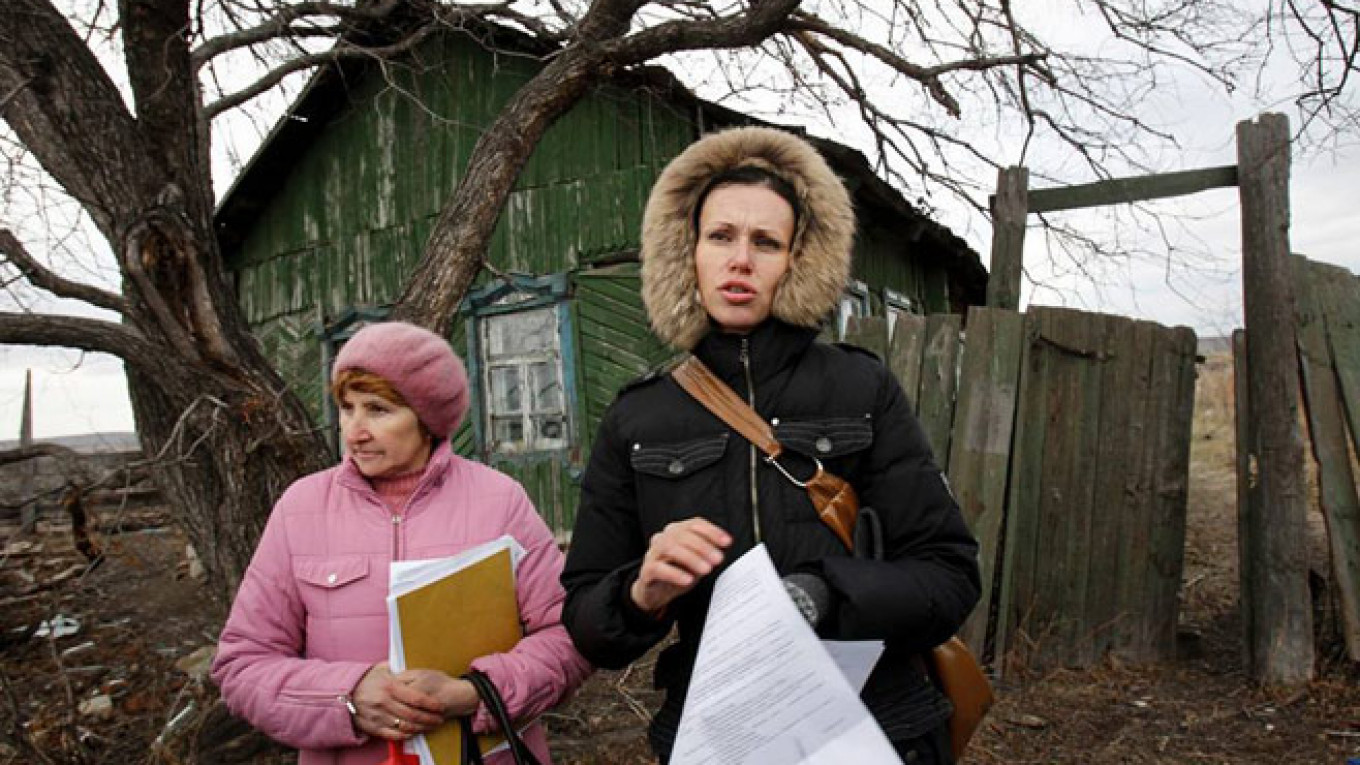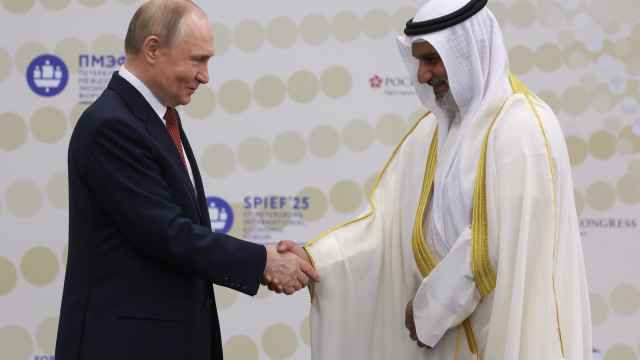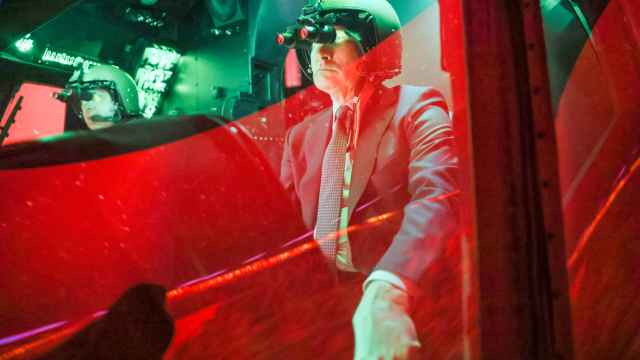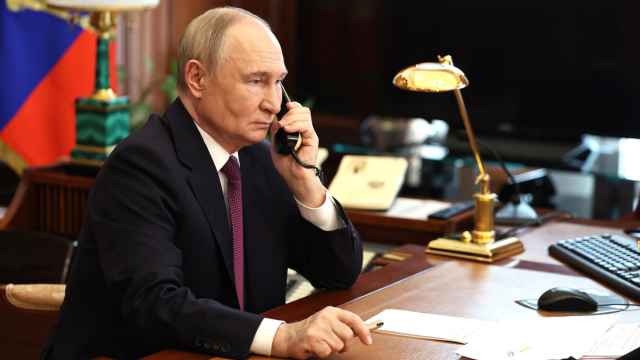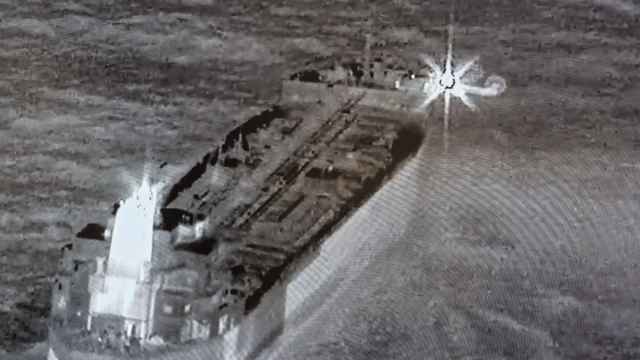A human rights activist from a small town in the Urals has fled to Paris seeking asylum after she was featured in a damning documentary on state TV, in the latest in a series of apparent witch hunts that have proliferated amid deteriorating relations between Russia and the West.
Nadezhda Kutepova, who had fought for the rights of the residents of a small closed town in the Chelyabinsk region where a nuclear accident occurred several decades ago, fled in complete secrecy, fearing that TV report accusing her of espionage was just a step away from formal prosecution.
Kutepova founded an NGO in the late '90s called Planeta Nadezhd (Planet of Hopes) in the town of Ozyorsk, which being built around the Mayak nuclear plant is classified as a strategic site and is accordingly closed to visitors.
Mayak makes components for nuclear weapons as well as storing and converting spent nuclear fuel. In 1957, one of the storage facilities exploded, and radioactive materials poisoned the area around it, including the River Techa. Kutepova fought for people to get the medical treatment and benefits they were entitled to for conditions connected to the accident.
Her NGO was declared a "foreign agent" in April under a law that labels NGOs involved in politics and accepting foreign funding as such.
Her case might have remained a local issue, but state-owned Rossia TV channel immediately threw Kutepova into the national spotlight — in a role of a sinister agent involved in industrial espionage and plotting against the country's nuclear industry.
"[In one of the programs,] the former head of the local FSB [Federal Security Service] gave an interview about me, and he had never given any interviews to anyone before. That's how I realized there was a directive to crack down on me," Kutepova told The Moscow Times.
Fearing she would be charged with espionage and treason, after consulting with her lawyer — who told her an arrest was highly likely — Kutepova and her four children left for Paris.
Media Storm
Planeta Nadezhd was fined 300,000 rubles ($4,600) on May 26 by a local court in Ozyorsk for not registering as a "foreign agent." The very next day, the federal channel Rossia 1 devoted a five-minute segment of its evening news to Kutepova.
"Planeta Nadezhd uses American funds to conduct industrial espionage," the channel's reporter Olga Skabeyeva said in the segment.
On June 1, another film about Kutepova was aired on the Yekaterinburg TV channel Rezonans TV. It featured an interview with Alexander Kalinin, then-mayor of Ozyorsk and a former head of the local Federal Security Service (FSB).
"She [Kutepova] still wants to close the plant and open the [closed] town. Her goals strangely correspond to the wishes of Western countries and competitors," he said in the interview. "Without a doubt, her actions are a threat," Kalinin added.
A month later another film was aired on the Rossia 1 channel, again made by the reporter Skabeyeva. In this one, Skabeyeva showed Kutepova's building and even the door to her apartment, which made Kutepova seriously fear for her safety.
"I consulted with my lawyer at that point, and he advised me to leave Ozyorsk" in order to avoid possible arrest, Kutepova told The Moscow Times.
No Isolated Case
This is not the first time state-run media has attacked figures in Russian regions who are not widely known to the public, and accused them of working for foreign countries.
In late June, Rossia 1 aired a film by the same reporter Skabeyeva about the U.S. academic Kendrick White, who worked as a vice rector at Nizhny Novgorod's Lobachevsky State University (UNN).
Skabeyeva's film portrayed him as a cynical U.S. agent whose sole aim in Russia was to find talented young scientists in order to spirit them away to the West. Two days after the broadcast aired, UNN announced White's dismissal on its website.
But amid the ensuing media circus, the university then asked the academic to return to Russia, apologized to him and promised him a new position.
Upon returning to Nizhny Novgorod, White agreed to do another interview with Rossia 1, hoping to set the record straight — but the second program turned out to be just as damning. White ended up losing his job after all, although the university claimed the decision to dismiss him had nothing to do with the TV broadcasts.
"TV [in Russia] does a very important thing: It legitimizes lies," said Vladimir Gelman, a political analyst and professor at the European University in St. Petersburg. "When an ordinary person who is not politically active ends up in a situation like this, they risk being exposed to public dishonor," he told The Moscow Times in a phone interview.
Such witch hunts are not necessarily ordered by state officials, said Gelman.
"Of course there are orders from the presidential administration to the media management, but when this machine starts working, it can function without these impulses from above: Journalists and editors censor and prepare information in a way that corresponds to the general style," he said.
Grounds for Fear
Kutepova's lawyer Ivan Pavlov, who specializes in treason and espionage cases, told The Moscow Times the mere fact that the channel used the term "espionage" is grounds for fear.
"I saw all those films about Nadezhda. A central TV channel used the term 'industrial espionage,' which in Russia equals espionage — part of treason, basically. Nadezhda's fears were real," he said.
"Ecologists are often persecuted," Pavlov said, adding that right now, Russia is seeing an epidemic of treason cases compared with previous years.
Kutepova, 43, was born in Ozyorsk and had lived there her whole life. She became an activist because she considers herself a victim of the nuclear industry, she told The Moscow Times in a Skype interview.
"My father and grandparents died of cancer because they worked for the nuclear industry, and my mother was driven to an early grave by endless fights in courts," she said.
"What we did was put pressure on the system and make the cases public knowledge. Of course Chelyabinsk officials didn't like it; they wanted Mayak to function and make money without anyone interfering with it," she said.
Kutepova says officials accused her of ruining the investment climate in the region. A request for comment The Moscow Times sent to the governor of the Chelyabinsk region remained unanswered by the time this article went to press.
As for the accusations of receiving foreign financing, Kutepova said she had never made it a secret that her NGO had grants from abroad.
"We have never concealed the fact that we had foreign funding," she told The Moscow Times. "And we were inspected like no one else was. As for political activity, they based that on four articles in the media. Two of them were interviews with me," she said.
Small Victories
At the moment there are some 25,000 people affected by radiation in Ozyorsk and areas surrounding the plant, Kutepova said, and some 600,000-700,000 people living in closed towns in Russia whose rights are constantly violated.
The nuclear accident of 1957 affected a lot of people, she said, but not everyone can prove it to the government and therefore get the social benefits and medical treatment to which they are entitled.
"A lot of people have pages of different diagnoses, but they're told their illnesses have nothing to do with radiation and are simply age-related," Kutepova said.
Kutepova admitted she had only been able to solve individual cases and problems concerning the plant, but said residents of the closed town now have far fewer problems getting permission for relatives and other visitors to enter the town.
"But it wasn't like that in 2003-04. For instance, they would only allow people's mothers to visit them once a year, for no reason. Or they would allow someone to visit for 10 days, but not 11. People dealing with the officials were in constant stress, asking for all these permits and waiting for an answer," she said.
Uncertain Future
Currently Kutepova has the status of a petitioner for political asylum in Paris. She would like to return to Ozyorsk and continue her work, but she's afraid of being prosecuted for espionage and treason.
Alexei Sevastyanov, the Chelyabinsk region human rights ombudsman appointed by the regional governor and legislature, told The Moscow Times prosecution was unlikely.
"The TV programs were obviously ordered by someone who wasn't pleased with Nadezhda's efforts," he said. "But there is no interest from the law enforcement agencies — her organization did receive foreign financing, and in a closed town it was thoroughly inspected, so if there had been any questions, they would have been asked by now," said Sevastyanov, for whom Kutepova had been working as a public adviser since 2011.
Kutepova said she had filed several requests with prosecutors' offices in Moscow and the Chelyabinsk region, inquiring about possible cases against her, but hasn't received any answers yet.
Contact the author at [email protected]
A Message from The Moscow Times:
Dear readers,
We are facing unprecedented challenges. Russia's Prosecutor General's Office has designated The Moscow Times as an "undesirable" organization, criminalizing our work and putting our staff at risk of prosecution. This follows our earlier unjust labeling as a "foreign agent."
These actions are direct attempts to silence independent journalism in Russia. The authorities claim our work "discredits the decisions of the Russian leadership." We see things differently: we strive to provide accurate, unbiased reporting on Russia.
We, the journalists of The Moscow Times, refuse to be silenced. But to continue our work, we need your help.
Your support, no matter how small, makes a world of difference. If you can, please support us monthly starting from just $2. It's quick to set up, and every contribution makes a significant impact.
By supporting The Moscow Times, you're defending open, independent journalism in the face of repression. Thank you for standing with us.
Remind me later.


